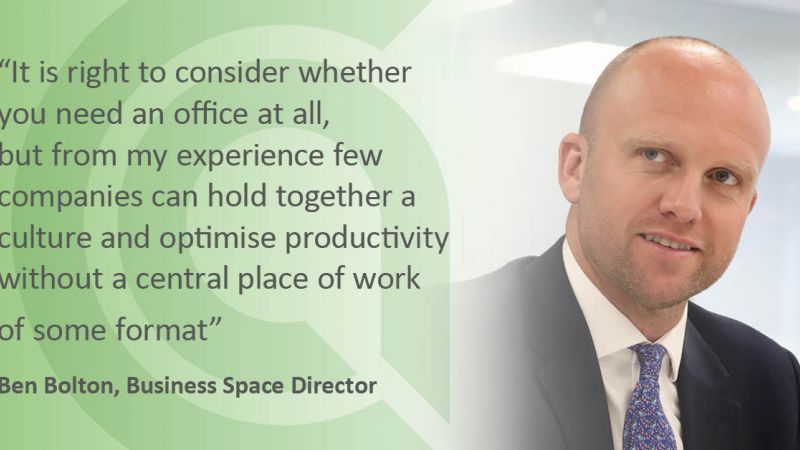Lessons Learnt and Robust Discussion
It is clear many companies have been surprised how resilient systems and staff have been to such significant change and how the workforce can operate effectively outside a traditional setting. For others it has compounded the benefit of working in the office and served to illustrate that, whilst some remote working is possible, ultimately productivity suffers. Whichever the viewpoint, all companies will come through this with a relevant test case personal to their own business rather than anecdotal views on how remote working will change work patterns which have circulated for years. These important experiences will provide greater focus for company business plans.
Some will understandably be keen to consider if they are able to remove the property overhead altogether or significantly reduce it by shifting parts of their staff to full time remote working. Few would make these decisions lightly and caution should be employed to initial experiences, either good or bad, over the short turbulent period we have encountered.
Robust discussion on occupational needs however is inevitable and correct to ensure the workplace remains relevant. Time and time again over the years we have seen many companies sleepwalk into repetitive ways of working if left unchallenged and the pandemic will serve to encourage all to reflect and question the status quo.
Changing Office Requirements in Flexible World
It is right to consider whether you need an office at all, but from my experience few companies can hold together a culture and optimise productivity without a central place of work of some format. It is important to recognise the working relationships we are benefitting from whilst we work from home today were largely formed in an office environment which will have allowed teams to slot into familiar patterns remotely.
We regularly work with clients to challenge and consider the relevance of their workspace to inform their own office strategies progressively. A consequence of this can be a steady reduction of the amount of floor space they require over a period of years. Robust auditing of space has encouraged this and often highlights how low occupation levels can be compared to total headcount as staff have become increasingly mobile. To reflect this, we have experienced a shift to more collaborative spaces and flexible working areas within organisations, which different parts of the business can draw upon to allow greater efficiencies. These initiatives do require careful thought in design as there are higher expectations for the spaces.
For large firms who employ in greater numbers, recruitment and retention of staff remains fundamental. Creating inspiring workplaces to cultivate an enjoyable environment and in turn loyal staff is critical, and it will be the challenge to engage with an increasingly remote workforce in some sectors long term.
This period will really test how we all cope with remote working and force the evolution of occupier requirements, and in turn landlord business plans, some of which would otherwise remain in a fixed pattern. I hope many more companies challenge the way they operate and commit to provide an environment that works well for their work force based on the evidence and experience from this forced period of interruption.
For me to suggest offices are becoming irrelevant would be akin to turkeys voting for Christmas and I recognise that… However, I am sure this unique period will be a point of reference and help accelerate changes to a market which in truth has already changed significantly for some and shown what is possible for others.


